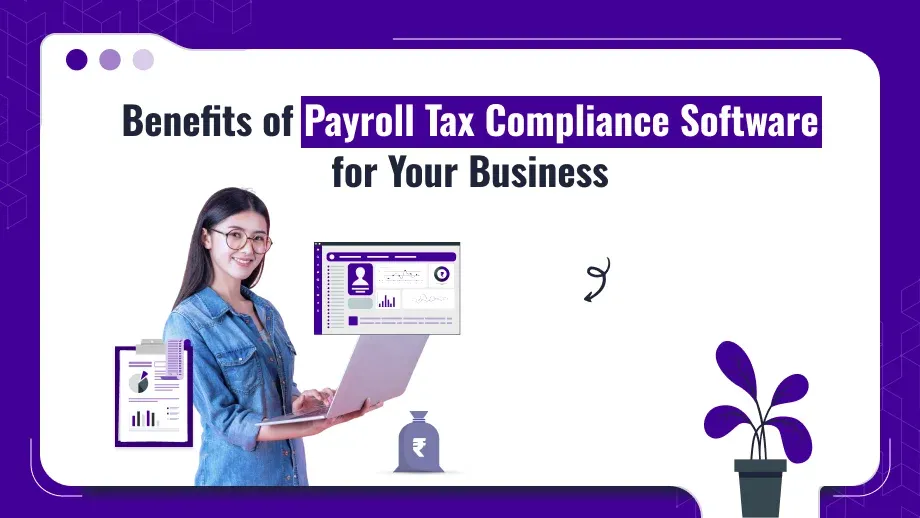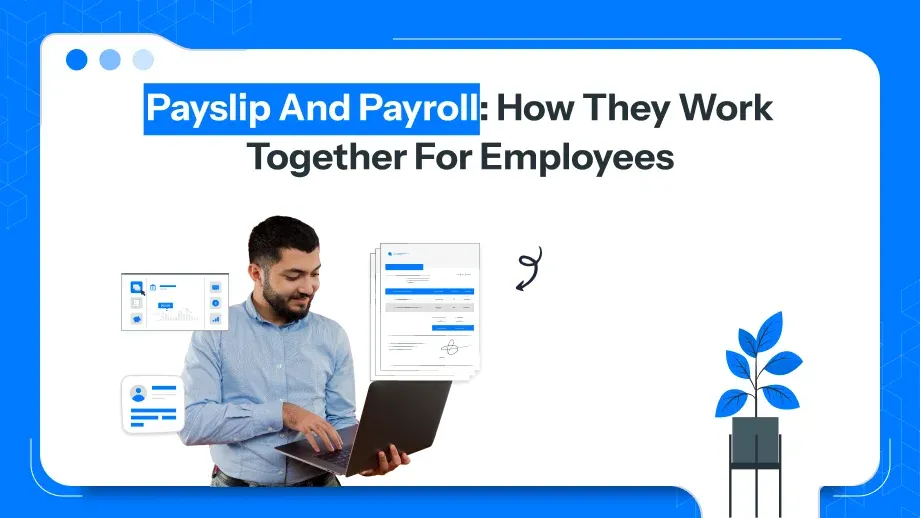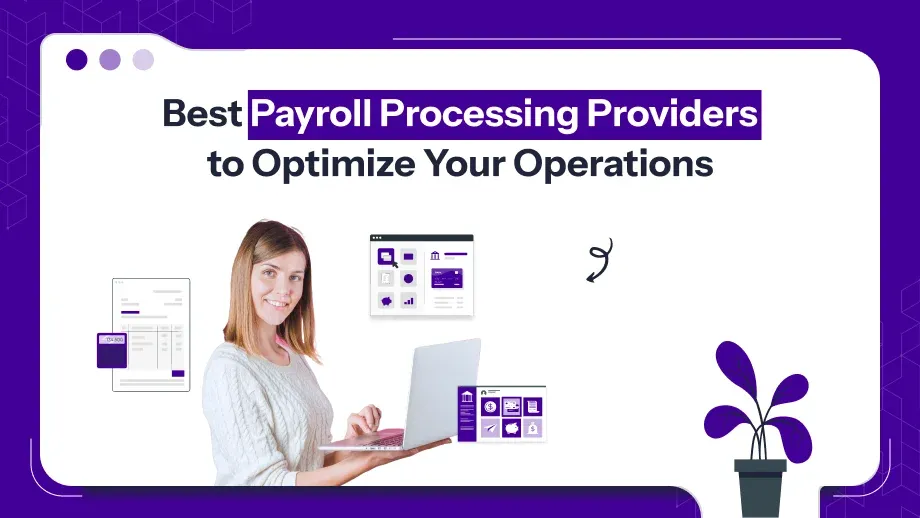The software is automated and simplifies the process of calculating, filing, reporting, and filing tax payments for payroll. It helps businesses remain in compliance with tax laws by keeping abreast of federal tax laws state and tax laws in the local area, by automatically altering tax rates, and by filing tax forms on time.
Grab a chance to avail 6 Months of Performance Module for FREE
Book a free demo session & learn more about it!
-
Will customized solution for your needs
-
Empowering users with user-friendly features
-
Driving success across diverse industries, everywhere.
Grab a chance to avail 6 Months of Performance Module for FREE
Book a free demo session & learn more about it!
Superworks
Modern HR Workplace
Your Partner in the entire Employee Life Cycle
From recruitment to retirement manage every stage of employee lifecycle with ease.



Seamless onboarding & offboarding
Automated compliance & payroll
Track performance & engagement
Benefits of Payroll Tax Compliance Software for Your Business
- tax compliance software
- 9 min read
- October 2, 2024
- What is Payroll Tax Compliance?
- Key Challenges of Global Payroll Tax Compliance
- Benefits of Payroll Tax Compliance Software
- Reducing Compliance Risks
- Time and Cost Savings
- Improved Accuracy and Efficiency
- Scalability and Flexibility for Growing Businesses
- Seamless Integration with Accounting and HR Systems
- Employee Self-Service Features
- How to maintain global payroll compliance with a partner service?
- Conclusion
What is Payroll Tax Compliance?
It’s all about ensuring your business is handling employee tax in a way that is correct, from remitting the appropriate amount of tax on income to after social security and healthcare contributions. The list doesn’t end there, however. It is also essential to be on top of filing, reporting and making payments in time. Be sure that your company is handling taxes properly with Payroll Tax Compliance Software, from timely withholding to accurate filing and payment.
If you include a global workforce in this mix of workers, matters can get more complicated. Payroll tax compliance is now having to manage different tax laws for each country, and navigating across-border employee tax laws and keeping up-to-date on local laws.
In this article we’ll examine the aspects of payroll tax compliance for payroll and look at the most significant issues that companies face when they manage payroll worldwide. In addition, we’ll look at ways to address these issues to ensure you don’t get sleepless about the payroll.
The main components of tax compliance for payroll include:
- Correct withholding of income tax: Ensuring that taxes are taken in accordance with the income bracket.
- Tax authorities are paid on time: Ensuring tax filings are completed without delay to avoid penalties.
- Social security and benefits contributions: Handling deductions like healthcare and retirement funds based on local laws.
- Proper record-keeping: Maintaining clear documentation for tax audits and compliance reviews.
Key Challenges of Global Payroll Tax Compliance
It can be a challenge to navigate payroll compliance across multiple countries, which can seem like navigating the middle of a minefield. Every country has its own unique laws regarding employment, tax regulations, and administrative rules that pose a number of key problems for multinational companies.
1. Managing Multiple Tax Systems
Each nation has its own tax laws that govern payroll, ranging from income taxes to Social Security contributions. It is important for businesses to know the way each tax system functions to avoid costly mistakes such as tax evasion or not meeting deadlines.
2. Compliance with Local Employment Laws
The laws governing employment differ widely between countries, with particular regard to minimum wage, overtime, and benefits for employees. For example, certain countries are required to provide a monthly 13th-month bonus as a part of the standard employees compensation.
Monitoring these changes is crucial to stay on top of compliance.
80% of companies find compliance to be a significant problem!
Solve your compliance issues with Super Payroll- Best Payroll Software
3. Handling Cross-Border Employee Mobility
Many employees relocate or work remotely from one location to another This creates complications concerning tax residency. Businesses must deal with tax treaties between nations to determine the correct tax withholdings for these employees. For instance, a worker who lives within France however working from a remote business located in the US could be subject to tax obligations across both jurisdictions. Uncertainty about these rules can result in penalties or double taxation.
4. Protecting Data Privacy
The management of payroll across borders requires handling sensitive employee information and must adhere to privacy laws like the GDPR in the EU as well as California’s CCPA. Incorrect handling of personal information can be a cause for significant legal fines. It is essential for businesses to have measures to protect data implemented that are in line with the local privacy laws applicable to them regardless of where employees reside.
5. Mitigating Currency Exchange Fluctuations
If you pay employees in various currencies, changes in exchange rates may affect the amount of wages paid. A change in the value of a currency could impact how much employees receive and the amount a business is liable for taxes. Companies need to account for these changes to ensure that they are accurate payment.
6. Insuring compliance with constant regulatory Changes
Social security laws, tax laws, payments, and labour laws often change around the world. Businesses must be aware of these changes in order to stay in conformity. For instance, changes in minimum wage taxes or laws can occur suddenly, and put companies at risk of not being in compliance in the event that they don’t prepare.
7. Employee Classification Issues
Falsely classifying employees as freelancers or contractors is a frequent risk to compliance. In several countries, contractors and employees have distinct tax obligations. Incorrect classification can result in costs, legal challenges as well as retroactive tax payment.
These issues create the global payroll tax compliance process an extremely complex job. Companies must be on top of their game to avoid penalties for financial violations or reputational damage. legal issues.
Benefits of Payroll Tax Compliance Software
As tax laws change constantly companies have to upgrade their payroll systems in order to remain in compliance.
If you own your own business, keeping on top of the payroll tax could be being a full-time job. However, it doesn’t have to be. Payroll software for tax compliance streamlines many of the tasks you’re doing manually, making it easier to keep up-to-date with changing taxes regulations and rules. It’s a major time saver for HR managers as well as business leaders.
If you’ve ever wondered what payroll tax software could aid your business Here are the top five reasons why it’s worth the cost.
Reducing Compliance Risks
Tax compliance for payroll isn’t something companies are able to afford to do wrong. Inadequately completing deadlines, misclassifying employees, or filing the wrong tax forms could result in huge penalties and fines. One of the most significant advantages of payroll tax compliance software is the ability to automatize compliance processes.
Payroll Tax compliance software reduces the chance of human error and remains up-to-date on all federal, state, and local laws. This is particularly important for businesses that operate across multiple states or countries because the software will take care of the complex issues in global payroll and tax compliance with ease.
Time and Cost Savings
Calculating taxes manually, filling out forms, and ensuring compliance is a significant amount of time. Payroll Tax compliance software can automate these procedures and lets you focus on more strategic work. With payroll and compliance software it is possible for your staff to avoid the monotonous tasks associated with payroll processing, while reducing mistakes that could result in expensive penalties.
Furthermore, automation decreases the need to outsource payroll administration, which saves cash in the long run. Numerous companies also discover that when they integrate HR payroll software along with their tax compliance systems, they can simplify the administration of various tasks, improving efficiency.
Improved Accuracy and Efficiency
Software for payroll and compliance ensures that each payroll cycle runs smoothly, no matter the number of employees you employ or where they are situated. The software will automatically apply the most recent tax rates and adjust to changes in regulations, making it easier to keep your payroll in compliance across all regions.
It doesn’t matter if it’s state, international payroll compliance it accurately calculates the taxes each employee is liable for and avoids differences. This is particularly important when it comes to global payroll, where nations have different tax rates and laws.
Scalability and Flexibility for Growing Businesses
As your business expands, so does the difficulty in managing your payroll. Companies that have operations across multiple countries or states require payroll tax software which can grow with them. These systems are built to handle global payroll SaaS operations, as well as tax compliance across countries and jurisdictions.
By using tax compliance payroll software that is tax-compliant allows you to recruit employees across state lines, or even internationally without worrying about the intricacies that local taxes impose. This is vital for companies that want to expand internationally while making sure that their tax and payroll systems are in compliance.
Seamless Integration with Accounting and HR Systems
One of the great benefits of Payroll Tax Compliance Software is how well it integrates with other systems your business already uses. Most payroll software solutions integrate with accounting software like QuickBooks or Xero, making the process of running Payroll and filing taxes almost completely seamless.
This integration also allows for real-time data sharing between your payroll and accounting systems, helping you generate accurate reports quickly. It also helps businesses manage other compliance areas, such as HR compliance and PF compliance, keeping all systems aligned?.
Employee Self-Service Features
Pre payroll activities for compliance software for employees which allow employees to log in and access their own information about their payroll along with tax forms, as well as pay histories. This eases the burden of HR departments, allowing employees to change their personal details as well as access W-2s and examine pay stubs by themselves.
How to maintain global payroll compliance with a partner service?
Monitoring compliance for global payroll can be a challenge, especially due to the diverse laws and regulations across nations. A partnership with a payroll service could make it easier to manage this process.
A reliable partner stays updated on international payroll laws, tax regulations, and employment requirements. They manage everything from taxes and social contributions to employee benefits, reducing the risk of costly mistakes or penalties. By automating payroll processes and handling country-specific compliance tasks, they ensure payroll accuracy.
Global payroll services also provide centralized reporting, making it easy to track compliance across multiple countries. These services typically offer expert support, so any legal changes or compliance updates are quickly reflected in payroll processes.
outsourcing the compliance of payroll to a specialist service reduces time and increases accuracy, allowing companies to concentrate on growing without the hassle of managing payroll in different countries.
Working with a reliable international payroll provider, businesses are able to be sure that their payroll procedures are compliant with international standards, ensuring their reputation as well as their financial stability.
Conclusion
It lowers the chance of compliance. It helps save both time and money. It scales up with your business’s growth and integrates with your existing systems to create greater efficiency. If they invest in the appropriate system for payroll, compliance, and tax businesses can ensure that they’re within the tax regulations while streamlining the process of payroll.
If you’re responsible for the payroll of a large staff or expanding into new territories, Utilizing Superworks payroll software for tax compliance is the best method to ensure your tax filings are complete and timely.
Superworks assists businesses in navigating complex tax regulations across several countries while also automatizing payroll processes.
Also see: payroll process in india | best payroll software | payroll management system software demo
FAQs
What is payroll tax compliance software?
What payroll tax compliance software aids you in avoiding penalties?
Automating tax calculations and filing programs for tax-compliant payroll decreases the risk of human errors that could result in late deadlines or inaccurate tax filings. This lowers the chance of hefty penalties that can be expensive if companies don't adhere to tax laws.
Does tax compliance software support multi-state or international payrolls?
Yes. The majority of payroll tax compliance software is created to manage worldwide payroll processes. It manages payroll for different countries or states while ensuring compliance of local taxes and regulations even when businesses expand internationally.
What are the primary advantages of employing software for tax compliance?
The most important benefits are:
- Lower risk of compliance mistakes and fines
- Scalability for businesses that are growing
- Complete tax filings and timely reporting
- Integration of existing Accounting and HR systems.
Payroll software can be integrated into other payroll systems?
Yes. Many compliance software solutions work seamlessly with payroll software for HR accounting software, and business systems for accounting. This can help improve processes while ensuring the accuracy for all systems.
Is payroll tax compliance software ideal for small companies?
Absolutely. If you're a small-scale business or a huge enterprise the software can be customized to meet your specific needs. Small-scale businesses can benefit from time and cost savings as well as ensuring that they are in compliance with tax laws.



